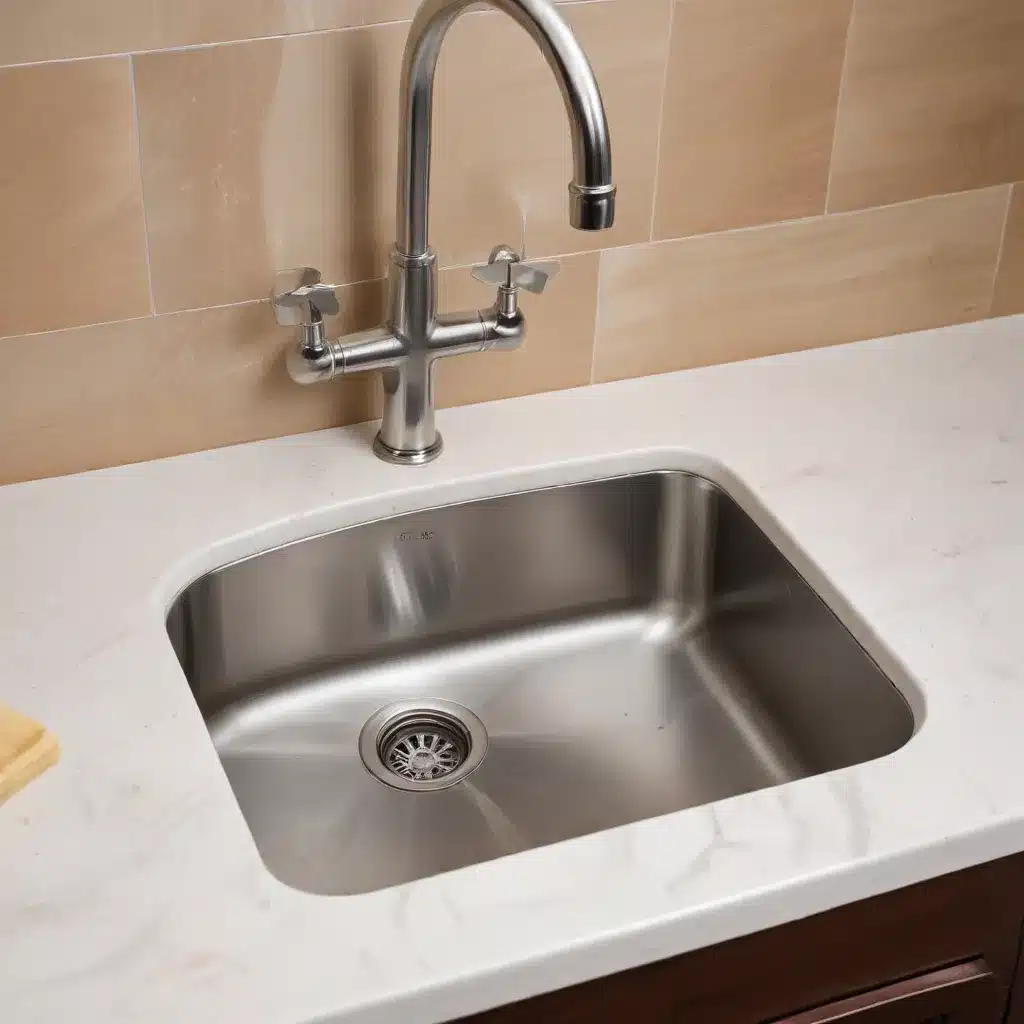
As a seasoned culinary professional, I’ve encountered my fair share of pesky kitchen drain clogs. Dealing with a clogged sink can be a frustrating experience, but with the right knowledge and preventative measures, you can keep your drains flowing smoothly. In this comprehensive guide, I’ll share practical tips and in-depth insights to help you maintain a clear and functional kitchen sink drain.
Understanding Common Causes of Drain Clogs
The first step in effectively managing kitchen sink clogs is to understand the underlying causes. Recognizing the various culprits behind these blockages will not only help you address current issues but also inform your preventative maintenance strategy.
One of the primary culprits in kitchen sink clogs is grease, oil, and food particles. When these substances cool, they can solidify within the pipes, trapping additional debris and creating a stubborn blockage. Similarly, hair, soap scum, and mineral buildup are common contributors to clogs in bathroom sinks and showers.
In the toilet, items that do not easily disintegrate, such as wipes, cotton swabs, and feminine hygiene products, can quickly accumulate and obstruct the drainage system. Laundry drains are susceptible to lint, fabric fibers, and detergent residue buildup.
Understanding these common causes of clogs is crucial in implementing effective prevention strategies and choosing the right unclogging techniques for your specific situation.
Effective Techniques for Unclogging Drains
When faced with a clogged kitchen sink, there are several methods you can try before resorting to more intensive measures. Let’s explore some of the most effective techniques for unclogging drains:
Plunging
One of the simplest and most straightforward approaches is plunging. This method involves using a plunger to create suction and dislodge the blockage. Plunging can be effective for minor clogs in sinks, showers, and toilets, as it helps push the obstruction through the drainage system.
Drain Snakes and Augers
For more stubborn clogs that are beyond the reach of a plunger, drain snakes and augers can be highly effective. These tools are designed to physically break up and remove blockages from within the pipes. By maneuvering the snake or auger into the drain, you can often reach and dislodge the clog, restoring proper water flow.
Enzymatic Cleaners
If you prefer a more natural approach, enzymatic cleaners offer a gentle yet effective solution. These cleaners utilize natural enzymes to break down organic materials, such as hair and food residue, without damaging your plumbing system. Enzymatic cleaners are biodegradable and can help clean and deodorize your drains.
Chemical Cleaners
As a last resort, you may need to resort to chemical cleaners to dissolve stubborn clogs. However, it’s important to use these products with caution, as they can be corrosive and potentially harmful to your pipes. Always follow the manufacturer’s instructions and ensure adequate ventilation when using chemical cleaners.
Baking Soda and Vinegar
A budget-friendly and eco-friendly option is the baking soda and vinegar method. By pouring a mixture of baking soda and vinegar down the drain, you can create a chemical reaction that helps break down organic matter and clear minor clogs. This natural solution is particularly effective for sinks and showers.
If the above methods fail to resolve the clog, it may be time to call in a professional plumber. Persistent or recurrent clogs can be a sign of a more serious issue within your plumbing system, requiring specialized expertise and equipment to address.
Preventative Measures for Maintaining Clear Drains
While unclogging techniques are essential for addressing immediate drain issues, prevention is the key to maintaining a well-functioning kitchen sink and plumbing system. By implementing the following preventative measures, you can significantly reduce the likelihood of future clogs:
Regular Cleaning and Maintenance
Regularly cleaning your drain stoppers and installing hair catchers in shower drains can help intercept debris before it enters the plumbing system. This simple practice is particularly important in areas prone to hair and soap scum accumulation.
Avoiding Harmful Products
To safeguard your plumbing, it’s crucial to avoid flushing items that do not easily break down, such as wipes, cotton swabs, and feminine hygiene products. Similarly, refrain from pouring grease, oil, and food remnants down kitchen sinks, as they can solidify within the pipes and cause stubborn clogs.
Hot Water Flushes
Incorporating hot water flushes as a weekly maintenance routine can greatly benefit your kitchen sink’s drain health. Regularly flushing the drain with hot water helps dissolve and displace any buildup of fats, oils, and grease, which are common culprits in kitchen sink clogs.
Professional Inspections
Scheduling annual plumbing inspections with a qualified professional can help identify and address potential issues before they escalate. These inspections can detect underlying problems within your plumbing system and recommend solutions to keep your drains flowing smoothly.
By understanding the causes of drain clogs and implementing these preventative measures, you can significantly reduce the likelihood of future blockages and the need for intensive unclogging efforts.
Conclusion
Maintaining a clear and functional kitchen sink drain is essential for a well-functioning kitchen and plumbing system. By recognizing the common causes of clogs, utilizing effective unclogging techniques, and adopting preventative maintenance strategies, you can keep your drains flowing freely and avoid the hassle of dealing with stubborn blockages.
Remember, addressing clogs promptly and taking proactive steps to maintain your plumbing can save you time, money, and stress in the long run. If you encounter persistent or complex drain issues, don’t hesitate to seek the expertise of a professional plumber to ensure your kitchen sink and entire plumbing system remain in optimal condition.
For more helpful tips and resources on kitchen maintenance, be sure to visit the Kitchen Warrior blog. Happy cooking and plumbing!


